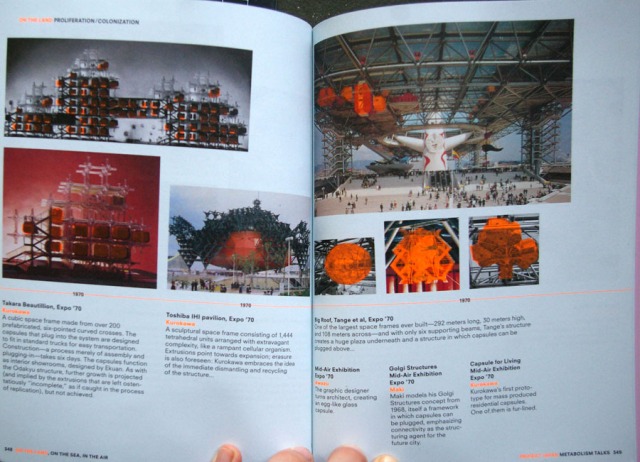 Photograph of the book Project Japan by Rem Koolhaas and Hans Ulrich Obrist. (editors Kayoko Ota with James Westcott) Koln: Taschen, 2011.
Photograph of the book Project Japan by Rem Koolhaas and Hans Ulrich Obrist. (editors Kayoko Ota with James Westcott) Koln: Taschen, 2011.
In a move that he clearly enjoy, Rem Koolhaas along with Hans Ulrich Obrist re-introduce theMetabolists in an era that consecrates SANAA and their followers as the new Japanese paradigm for global architecture. It is indeed difficult to find two visions of architecture that different and the fact that they were produced in the same country makes this opposition even more visible. The 700-page book Project Japan can therefore be considered, not as a retroactive manifesto (that was the self-definition of Koolhaas’ Delirious New York), but rather as a rehabilitative archive. It is a document that illustrates the coherency of a historical movement created as both individual and collective work in a way that cannot be observed in any way nowadays. Through interviews with almost all the actors of this movement -Kurokawa and Kitutake died since then-, R.Koolhaas and H.U.Obrist explore as much the origins of this ambition (they find them in Kenzo Tange’s experience of the war in China and its large territories) as the globalization of the movement which saw the Metabolists proposed many projects in the Middle East. The photographs of Charlie Koolhaas of several buildings built in the 60’s in their current state also bring an interesting comparison with the original documents and the endurance (or not) of those building to time.
Beyond the subjective reading of the two Europeans, this book is mostly a very valuable archive of documents created by the Metabolists, many of them which are probably not findable in already published books. In this regard, the Repertoire of Metabolism is particularly rich through its succinctness. In thirty four pages, we access to a visual inventory of the various architectural inventions or appropriations that the Metabolists have been developing through their work. The key typological words are the following:
– Capsules
– Ground/Artificial Ground
– Proliferation/Colonization
– Group Form
– Floating Cities
– Unicore/Joint core
– Megaforest
The following (bad quality) photos constitutes an excerpt of this chapter. They are all extracted from the book Project Japan by Rem Koolhaas and Hans Ulrich Obrist. (editors Kayoko Ota with James Westcott) Koln: Taschen, 2011.
– Capsules
– Ground/Artificial Ground
– Proliferation/Colonization
– Group Form
– Floating Cities
– Unicore/Joint core
– Megaforest
The following (bad quality) photos constitutes an excerpt of this chapter. They are all extracted from the book Project Japan by Rem Koolhaas and Hans Ulrich Obrist. (editors Kayoko Ota with James Westcott) Koln: Taschen, 2011.
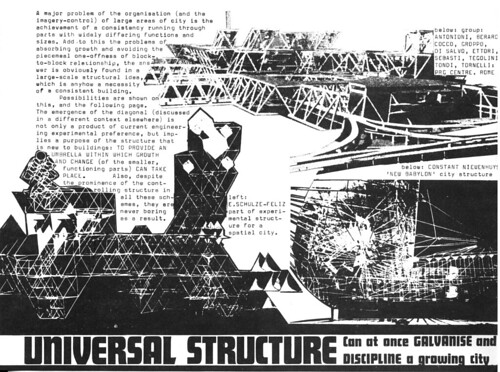

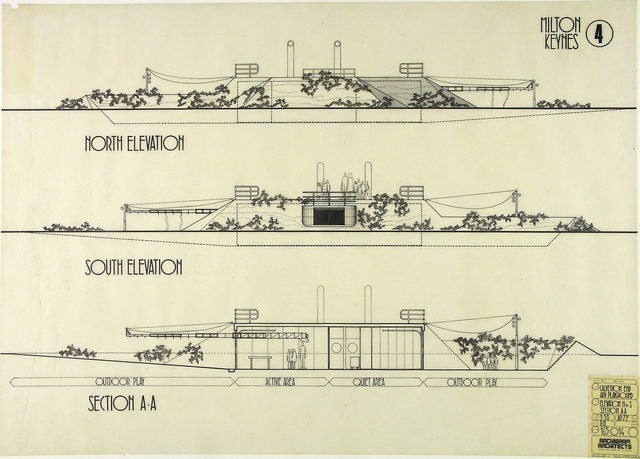




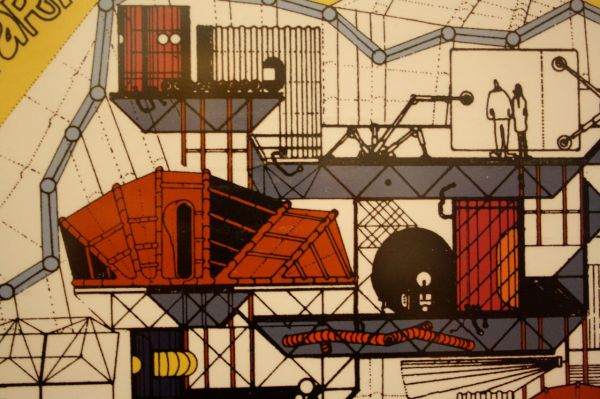

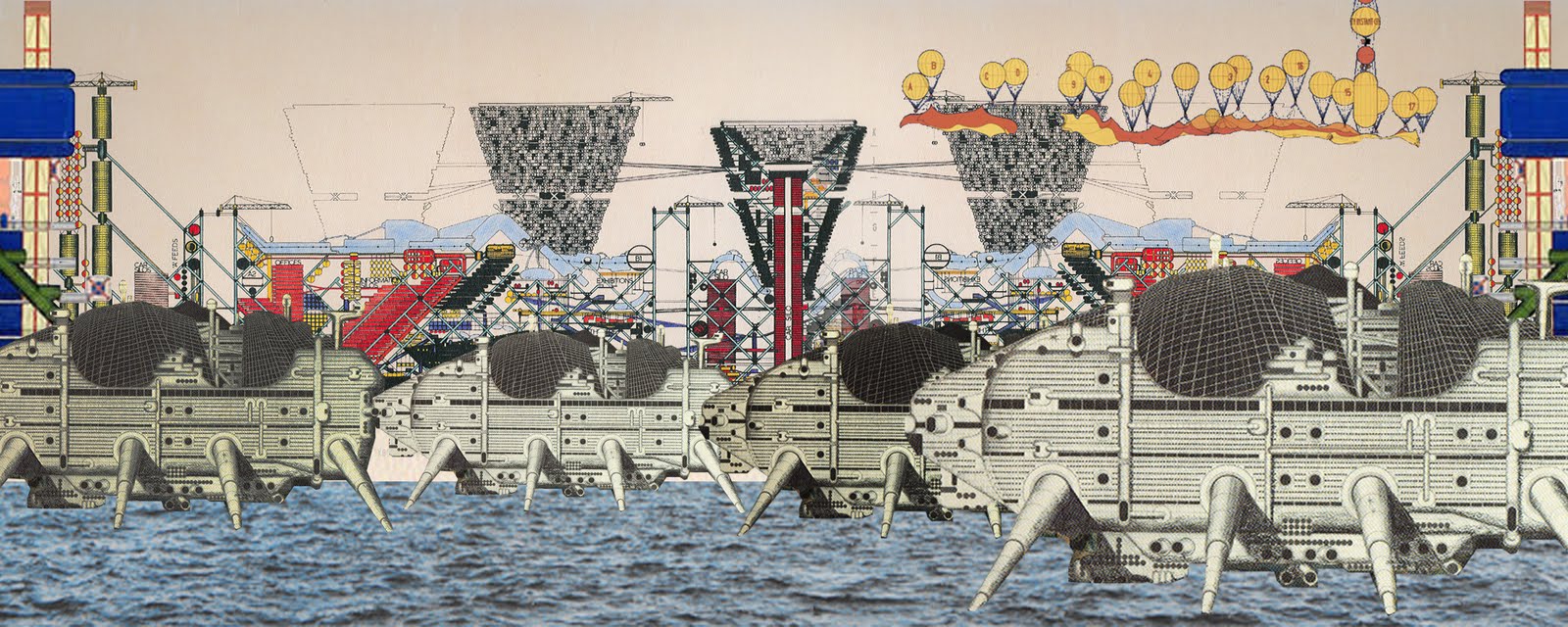
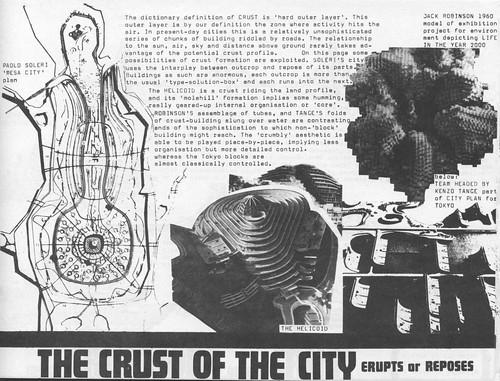
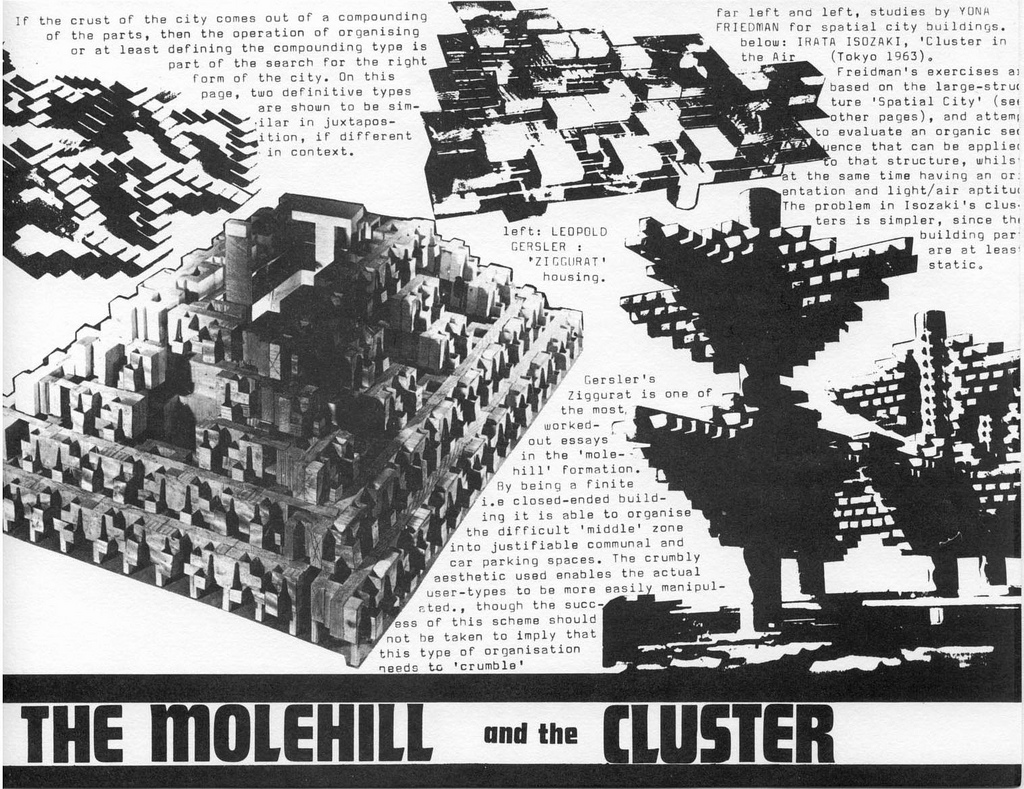









0 Comments:
Post a Comment
『卻說不出在什麽場合我曾讓你分心。
你離開我,這是旅行的意義』